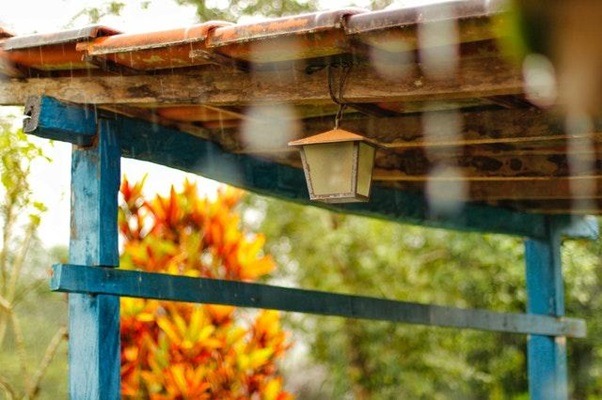Climate change is a worrying issue. Rising water levels, melting glaciers, and unpredictable changes in weather are just a few side effects of this phenomenon. One disturbing concern, especially for homeowners, is flooding after a heavy rainfall or a storm.
Recently, record rains in several parts of the world caused floods in basements and created a mess for homeowners. However, several things other than that can cause your house to flood. Spring showers and light rain can also cause excess water to accumulate in your basement. Issues such as leaky pipes, plumbing problems, and clogged drainage systems can also cause emergency flooding.
Unfortunately, plumbing woes are unavoidable results of temperature fluctuations and poor domestic cleaning habits. The slow-melting ice in snowy areas can create puddles in gutters. The excess water then enters homes through cracks in foundation or mortar joints. Similarly, clogged drains, foliage, and plastic waste can block your drains leading to backflow. All of these come with several risks.
Risks of water damage
Water can destroy cherished items, such as family heirlooms, furniture, and electronics. It can also damage the structure of your house. Therefore, a flooded basement is a health hazard because there is a risk of electrocution or injury. People may develop breathing problems because of humidity, mold, and bacteria.
If your basement has flooded recently, we recommend contacting water damage services immediately. Experts offer a quick assessment of the problem at hand. They can also help you take the necessary steps to restore your property before things get worse. After all, no one likes soggy boxes, soaked carpets, pests, and humid basements. Delays cannot only cause further damage to your possessions, but mold may also grow on your basement walls within a few days. Therefore, after calling in the experts, follow these tips to rectify the problem and mitigate any immediate risks.
Turn off the electricity supply
People who want to do it all on their own should be careful because standing water can cause electrocution. Avoid turning off electricity yourself if you have to stand in water to cut off electricity. Call your power company instead to disconnect the electricity supply before you decide to be brave enough to step in the water. Turn off the power for the whole house to be safe. Do not touch any electrical appliances when you get into the basement.
Assess the damage
Take photos to document the situation. This practice will come in handy when claiming insurance. Look for items you can salvage and then remove them from the basement. One snag is that most home insurance policies do not cover floods. So, you may have to pay for everything out of your pocket. However, you should contact your insurance provider to ask about the policy. You can also call 888-379-9531 to get some information about the National Flood Insurance Program.
Get ready to clean
Standing water contains several bacteria and critters. So, protect yourself from contaminants before standing in dirty water. Wear eye protection, gloves, and galoshes to begin the clean-up process. Be careful not to track the water to other parts of your house. The water may have contaminants that can harm children, pets and other expensive items. Your primary goal is to get out water and mud as quickly as you can. While a wet vacuum can remove a few inches of standing water, substantial damage requires expert water removal services. You can even use a broom or a wiper to remove water.
Disinfect the place
Disinfect the affected area. You can either use a store-bought disinfectant or make one at home. Just add eight tablespoons of chlorine bleach into one gallon of water to disinfect surfaces. However, bleach fumes are very harmful to your body. So, wear gloves and eyewear and keep the area ventilated. You can also use rock salt on plaster and drywall to disinfect those surfaces.
Dry the area
Thoroughly drying the area is essential to prevent mold and mildew from growing. Experts suggest using dehumidifiers and fans to keep cross ventilation. Your dehumidifiers should be at least six inches away from the walls for circulation. Drying the area will take several days. So, you have to be patient with the process. Clean the filters of the humidifiers after a few days. You should also run your air conditioning constantly to dry the room. Throw away all damaged wet items to hasten the process.
Check all the nooks
Your drains, gutters, and downspouts can have a lot of trash stuck after flooding. The debris can cause another minor flood. So, put on your gloves and check the drains. Then take out the drain screen and clean it. Try to use a plunger to clear the pipes and throw away any leaves or mud. Lastly, check the downspouts around the house and remove twigs or rocks.
Get rid of the odor
You will have to ventilate the area to prevent odors from building up in the basement. Remove baseboards to ventilate basements with wall cavities. Then, drill holes above the floor to drain excess water. Water can damage insulation and make it useless. So, remove, dry, and replace insulation to avoid mildew.
Ask an expert
Do not make the mistake of checking heating systems yourself because a clogged boiler can explode. Ask a professional to examine the furnace. They will unclog the chimney and smokebox. Remind them to inspect where the chimney meets the foundation to check the mortar.
Focus on maintenance
Keep in mind that maintenance prevents water damage. So, plan for a flood. Snake out your drains and use root killers to cut through unwanted debris. You should also review your homeowner’s policy annually to prepare for a disaster. Consider installing an interior draining system connected to a sump pump. The drain will prevent leakage and minimize hydrostatic pressure.
Bonus tip: Freeze assets
You can salvage your damp valuable records with a simple trick. Just put them in the freezer for a few hours, and they will be as good as new. Freezing documents prevent mildew growth and further deterioration. Rent out storage space to store your valuable items and keep them in mint condition. Use storage boxes with concrete blocks under them to store things and keep possessions elevated.
Conclusion
Water damage is every homeowner’s nightmare. It can weaken the foundations, cause injuries and cost thousands of dollars to repair. Homeowners with water damage should try to remove standing water as soon as possible. People living in areas with frequent flooding should keep all their possessions in storage to avoid damage. However, regular maintenance can keep your basement water-free and your life stress-free. So, install waterproofing material in your basement. Last but not least, always call a water damage expert when things get out of hand.

